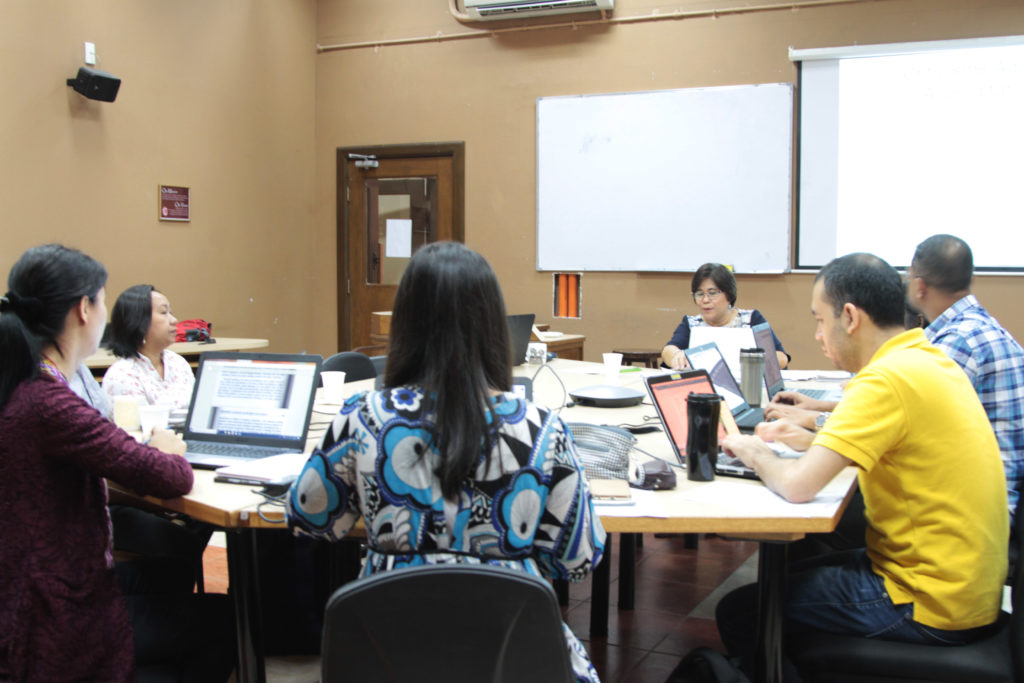Article by: David Ford
On Wednesday, July 18, Dr. Theresa Lua, General Secretary of the Asia Theological Association, visited the campus of Asia-Pacific Nazarene Theological Seminary to facilitate a seminar on the topic of government recognition and accreditation of theological schools. The seminar was part of a course on Governance, Legal, and Accreditation Issues for the PhD program in Transformational Learning. Dr. Lua provided an overview of recognition and accreditation procedures in the Philippines, and the various agencies that institutions of higher education will need to work with for legal recognition. The seminar discussion also focused on the importance of accreditation and the benefits to institutions that pursue membership with accrediting agencies. In general, it was demonstrated that pursuing accreditation is an important factor in improving the overall quality of education that institutions provide for learners and gives credibility to the practice of higher education.
Dr. Lua, who exercises a key role as a site-visitor and assessor of theological schools seeking accreditation with ATA, shared from her experience the processes which schools have to follow for accreditation. She shared many helpful anecdotes from her experiences to provide students with insight into the dynamics that usually accompany accreditation processes. Some of the more recent developments concerning how the quality of theological education is measured were also discussed. Instead of focusing on the quality of program input, activities, and output, Dr. Lua shared how assessing program impact on the church and broader society is a more valid measurement of the quality and effectiveness of a theological school.
One of the important reasons to embrace accreditation, according to Dr. Lua, is that it may serve as an effective catalyst for renewal in theological education. This is especially pertinent in light of much criticism of theological education that has been expressed. Since theological colleges and seminaries educate the future leaders of the church, it is imperative that theological education be renewed to serve the church as it engages the world as a witness of the Gospel.
